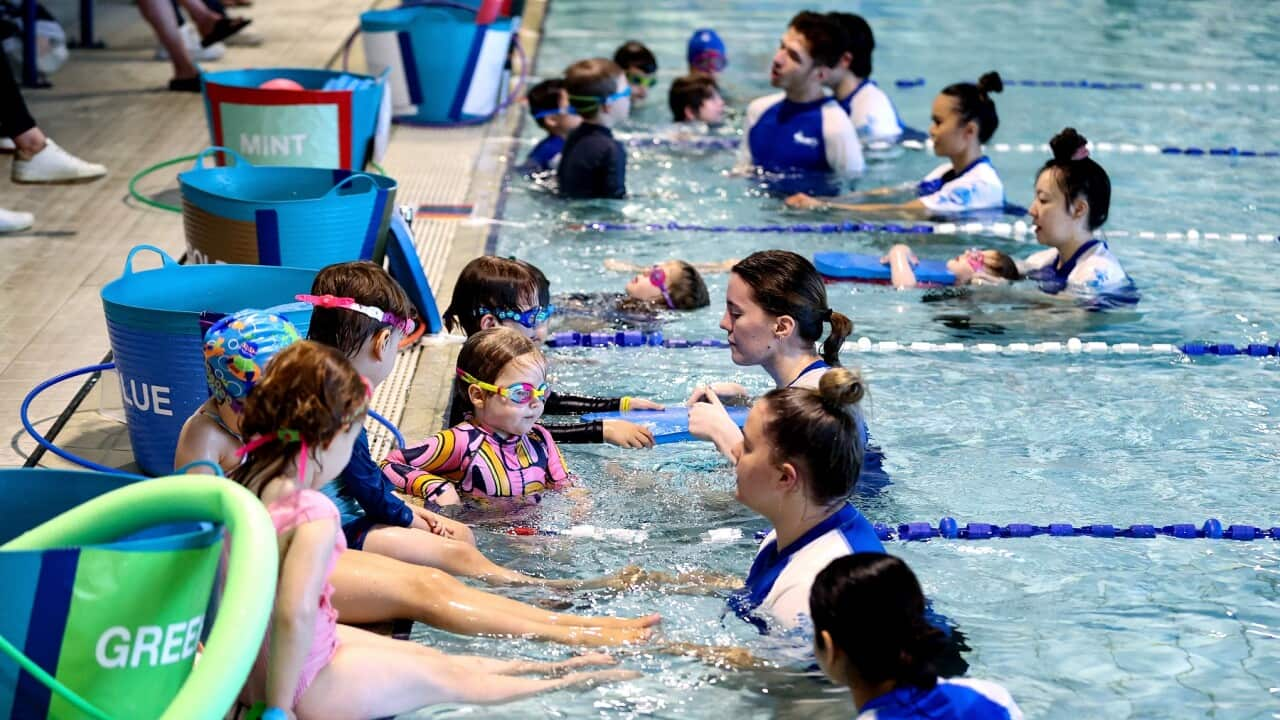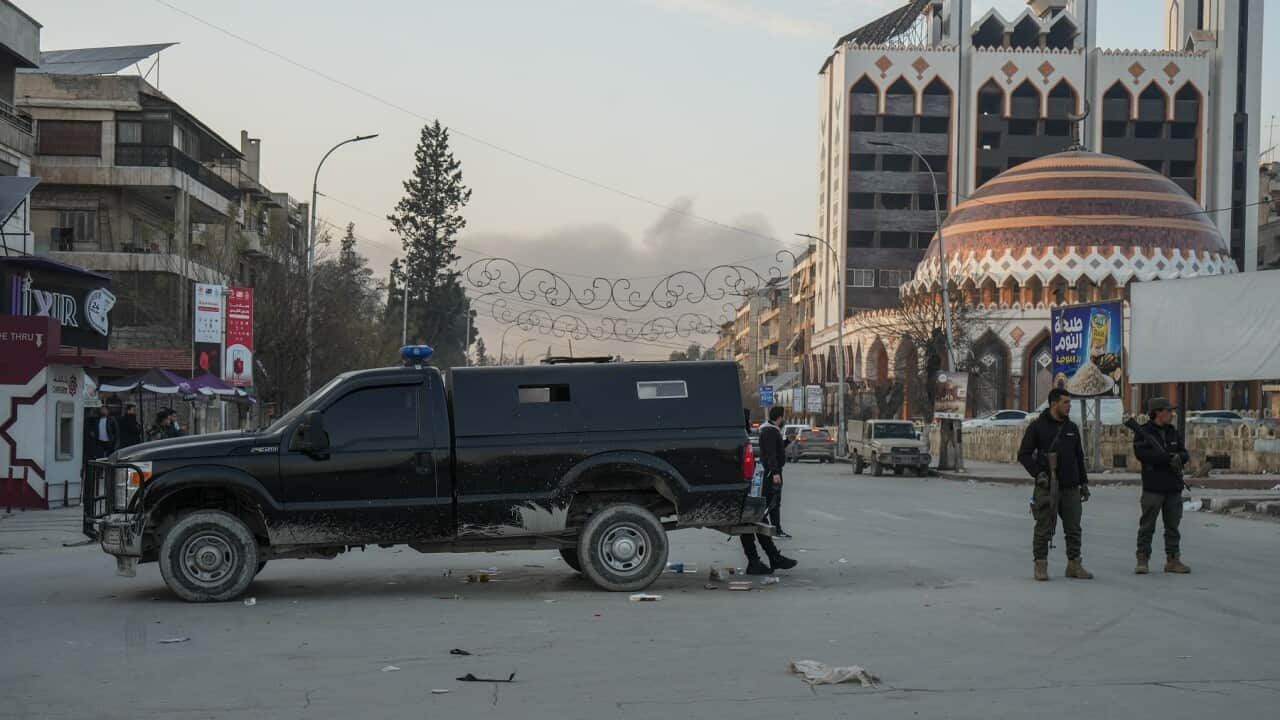August 3, 2014 was a day that forever changed the Yazidi population of northern Iraq. It was the day that the Islamic State group launched an offensive against that community in the Sinjar district.
Six years on, the pain endured during that dark period remains etched on Yazidi woman Zahreh Mahmoud, who arrived in Australia as a refugee in June 2018 with her four daughters and one son. On the day of the attack, Mrs Mahmoud and her family were taken captive along with hundreds of other Yazidis.
On the day of the attack, Mrs Mahmoud and her family were taken captive along with hundreds of other Yazidis.

The family was captured along with thousands of other Yazidis - a religious-minority - when the terrorist group attacked their hometown of Sinjar, Iraq, in 2014 Source: SBS
“We were all taken captive except for one of my sons who wasn’t home at the time. I along with my four girls and my younger son and my husband were all captured by IS,"she said. "But two hours later they separated my husband from us and he has been missing since then."
As revealed by SBS in 2019, Mrs Mahmoud's then 11-year-old son Shvan*, who was not home during the initial round up, was eventually taken and forced to fight with the fundamentalist group for five years before he was freed in March 2019.
“They treated me unkindly by beating me a lot, their treatment was inhumane, and to them, we were their slaves," he said.
“There was a lot of brainwashing on a daily basis like military and religious education.”
He is now with his extended family in a refugee camp in the Kurdistan region.
Shvan said he applied for an Australian visa in June 2019 and was interviewed by an Australian official at a hotel in northern Iraq on July 10 that year.
He told SBS Kurdish on Friday that he is desperately waiting for news from the Australian government after he was contacted in March to attend a follow-up interview, which he was unable to make due to the COVID-19 pandemic.
Shvan's situation has added immense stress and anxiety on his mother.
“It’s been a very difficult six years that have passed, and it’s been six years since I have seen my son who was taken captive by terrorists for five years," she said.
"He’s been waiting for the past year to come to Australia, but I haven’t heard anything yet about when he will be coming." She's calling on the Morrison government to bring her son to Australia "as soon as possible".
She's calling on the Morrison government to bring her son to Australia "as soon as possible".

File: A journalist watches as smoke rises over Sinjar, northern Iraq from oil fires set by Islamic State militants. Source: AP
"My son is the only one that is left there. I am depressed and my mental situation is not good, I am mentally not in a good place now.
"I would like my son to be here with me and with the rest of his siblings. I feel for him when he’s unwell, I miss him very much, my heart hurts for him."
The Department of Home Affairs would not confirm if his application is being considered and said it did not comment on individual cases.
For many Yazidis, including the thousands who have been resettled in Australia, it is impossible to forget all that has happened since that day in 2014.
Despite the suffering and mass killings, Mrs Mahmoud believes there has not yet been "sufficient actions" made by the international community to bring the perpetrators to justice.
“Nothing has been done for us, not from any country, not from the Iraqi government or Kurdistan government regarding the mass graves. The bodies in mass graves should be identified and returned to their loved ones to be buried properly.
“There still are thousands taken captive by IS, some in refugee camps, in prisons and many of them are girls, women, children, and men still suffering.”
Mental health and COVID-19
With the COVID-19 pandemic, this year has been particularly tough for the Yazidis who continue living in the Internally Displaced Persons (IDP) camps in the Kurdistan region of Iraq, as well as those in the Rojava region of northern Syria.
Dr Nemam Ghafouri is the founder of the charity organisation, Joint Help for Kurdistan, which helps Yazidis and other displaced people in the Kurdistan region and Rojava.
She said most basic services have been reduced due to the pandemic.
For the Yazidis in these camps, Dr Ghafouri highlights the need for further mental health services for those who are highly traumatised, particularly the women and children who have been rescued from IS captivity.
Furthermore, she said mental health was the first issue faced by Yazidis in the camps during the pandemic, as the younger people became concerned about the very few elderly survivors.
"Many elderly Yazidi people where killed by IS, therefore the biggest worry for the younger generation was for elderly members of their family."
Although there have been mental health services provided to these refugees, it has not been enough to meet their needs, Dr Ghafouri said.
She said the women and girls who have been rescued from IS need the most help.
"When they were captured by IS in August 2014, some of them were aged 10-12 years, they spent 5-6 years in captivity. Therefore when they returned, they cannot be treated like an 18 or a 20 year old adult. They have lost 5-6 years of their lives, therefore we cannot expect them to bond and build a relationship with their surviving family members overnight.
"One women was rescued in February this year, after six years. Now it has been six month, she is yet to sit down with a counsellor or a psychologist, and now the coronavirus restrictions have made the situation much worse for these people."
In some cases, it's only when they reach a country like Australia that these traumatised women and children can get the help they need in order to slowly heal.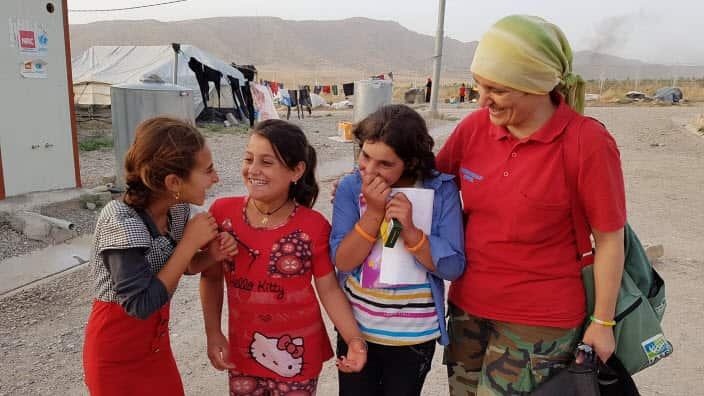 Dr Ghafouri is in contact with resettlement services in Australia who look after the newly arrived Yazidis.
Dr Ghafouri is in contact with resettlement services in Australia who look after the newly arrived Yazidis.

Dr Ghafouri having a chat with Yazidi girls in an IDP camp in the Kurdistan region. Source: Supplied to SBS Kurdish
She recalls the case of a young mother and her four-year-old child who were rescued from IS and resettled in Australia.
"Close to a year in the camps, and they never received any rehabilitation treatment, the child would not speak nor smile. They have now been in Australia for almost a year, the little boy is starting to speak, he's able to attend pre-school, and finally is able to smile."
'I never lose hope'
Mrs Mahmoud said her mental health has suffered due to the uncertainty surrounding her son's application.
After six years apart, she said she misses him very much, and blames the pandemic for the delay in the application process.
“I think my son not being in Australia yet is because of coronavirus, otherwise I think he would have been here by now. But the government should assist in some situations - situations such as my son’s one whose immediate family is here in Australia.
“Ever since coronavirus everything has stopped, there aren’t any flights coming here. Yes, I and my children are here and the Yazidi community is assisting in any way possible, but my children have no father and no brother here."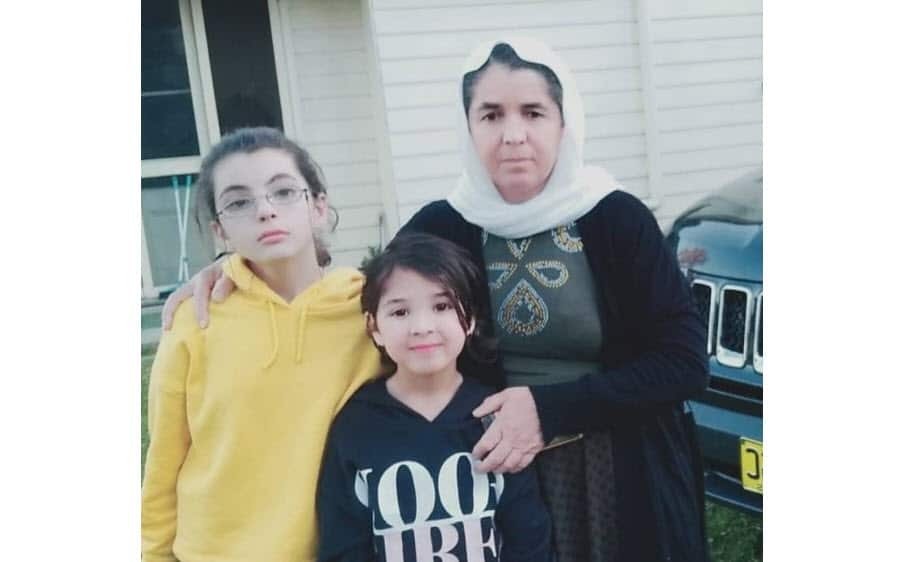 She still lives with hope that she will be reunited with her husband.
She still lives with hope that she will be reunited with her husband.

Mrs Mahmoud and her two young daughters. Source: Supplied
“Some people say he is still alive but still taken captive by IS. I haven’t heard from him since the day Sinjar was attacked. I never lose hope, I always have hope that one day he will be found and returned to us.”
Dr Ghafouri said, to date, 2886 women and girls remain missing from the Sinjar attack.
"IS has been eliminated geographically, however as an organisation they're still active. The Al Hol refugee camp is a mini IS Khalifat, the United Nations has done nothing as an attempt to organise this camp that has close to 70,000 people," she said.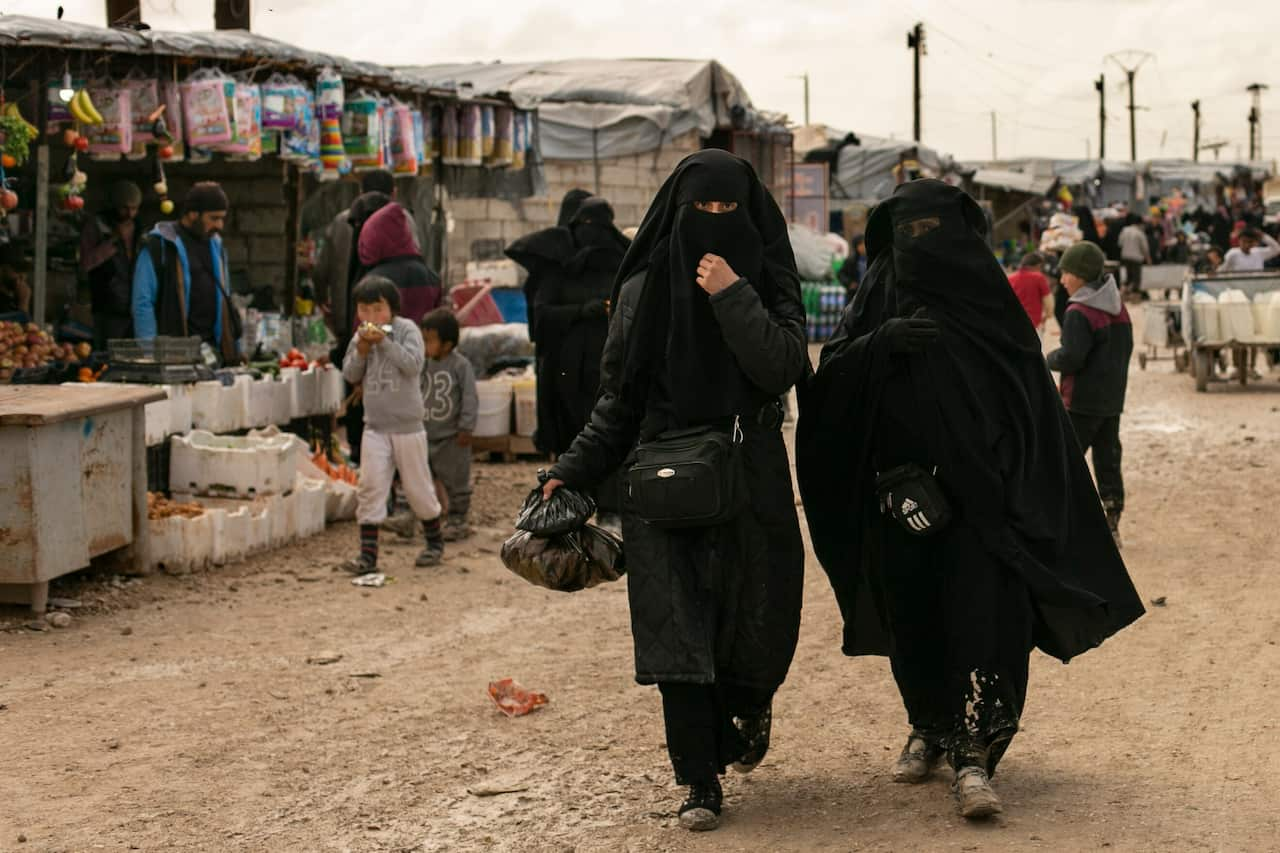 She said there are many Yazidi girls who are trapped in the camp in northern Syria, and are too afraid to speak up or ask for help.
She said there are many Yazidi girls who are trapped in the camp in northern Syria, and are too afraid to speak up or ask for help.

The Al-Hol camp is home to tens of thousands of people, including the relatives of Islamic State fighters. Source: AP
Dr Ghafouri, who has been inside the Al Hol camp, said some Yazidi women "dress up as IS women, in black burkas, and enter the camp in search of their loved ones".
Family members of those who remain in captivity are extorted for ransom and face impossible choices, Dr Ghafouri said, recalling the case of a Yazidi girl who was recently rescued.
"She was bought by an IS member from Mosul, who is in currently in Turkey, he had bought her for around $500 USD, her family had to pay over $8,000 USD to free her."
*Name has been changed



